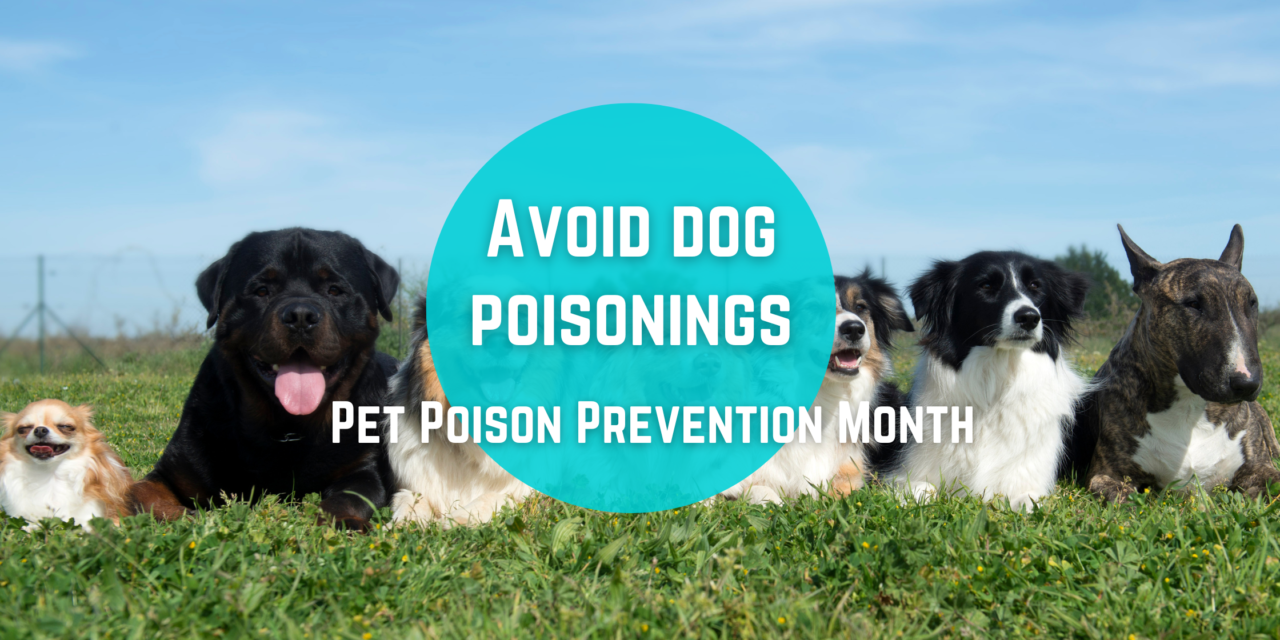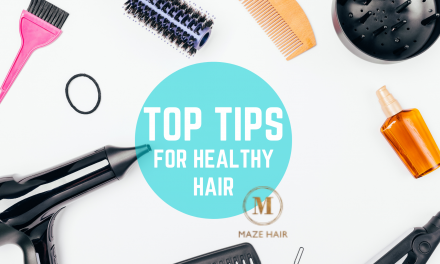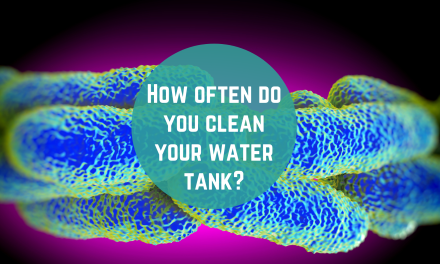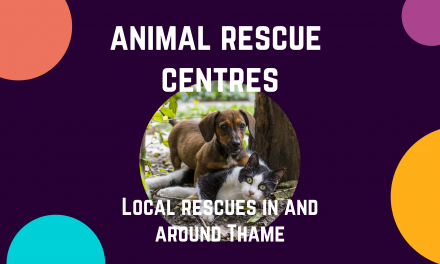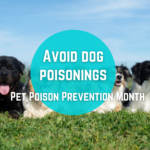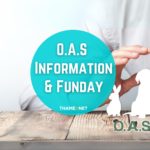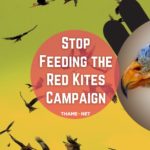March is Pet Poison Prevention Month & is a great time to familiarise ourselves with some common household items which could be of a risk to our four-legged companions!
Foods which are harmful to dogs
Chocolate- I think most of us are aware of how toxic chocolate can be to our dogs, this is due to the caffeine & theobromine it contains. These 2 ingredients can cause the nervous system, guts & muscles to go into overdrive. This could cause symptoms such as an increase in heart rate, increased blood pressure, hyperactivity, vomiting & diarrhoea. Dogs usually start to show signs of illness around 4 hours after they’ve ingested chocolate but it could take up to 24 hours in some cases.
Grapes & Raisins- these are part of the family of fruit called ‘Vitis vinifera’ which can cause gut & kidney problems in dogs. A study done by ASPCA Poison Control Centre (APCC) has found out that it is the tartaric acid in grapes which is the culprit, grapes, raisins & sultanas contain different levels of tartaric acid based on the type of grape, where it was grown & ripeness. Symptoms can vary from dog to dog but can include vomiting, diarrhoea, excessive thirst, kidney damage or failure.
Garlic & Onions- These foods along with other members of the Allium species such as leeks & chives are toxic to dogs & cats. It does not matter whether they are raw, cooked or powdered- all forms are harmful to our beloved dogs. They can damage the red blood cells in our pet & could lead anaemia. Symptoms can include pale gums, lethargy & discoloured urine.
Food Containing Xylitol- This is used as a sugar substitute in some foods such as sugar free chewing gum or sweets, some peanut butter brands and some medications for example. It’s poisonous to our dogs as once eaten it stimulates the pancreas to release insulin. The increase of insulin into the dog’s bloodstream can cause hypoglycaemia (low blood sugar) which can result in the following symptoms: vomiting, seizures, liver failure & lethargy.
Nuts- While some nuts are safe for our dogs to eat such as peanuts here’s 3 that you should most definitely avoid feeding to your pet.
- Almonds aren’t safe as dogs cannot chew or soften them with saliva, which could cause your dog or choke or they could cause intestinal blockage. They are also high in phosphorus which isn’t good for a dog’s kidneys or bladder.
- Hazelnuts are especially bad for small breeds due to the toughness of the nut making it hard to digest. Your dog may not be able to chew it which in turn could cause choking or even an intestinal blockage. Hazelnuts may also cause intestinal & anal tears. They also are of poor nutritional value.
- Macadamia Nut ingestion can lead to muscle weakness- especially the back legs, vomiting, fever, diarrhoea & hyperthermia. Symptoms are normally displayed between 3 to 24 hours after eating. In rare cases dogs can develop pancreatitis or intestinal obstruction.
Cooked Bones- Any cooked bone should be avoided, once cooked bones become more likely to splinter or shatter which could damage your dogs’ mouth, throat & intestines. They are also a lot harder to digest which could bring a risk of an intestinal blockage.
Some other foods to avoid feeding your dog are avocados, fat trimmings (can cause pancreatitis), stones from fruits, raw potatoes, rhubarb, caffeine, alcohol, blue cheese, raw bread dough, mushrooms & mouldy food.
Plants
Some commonly found plants are also toxic to our dogs! A lot of people are aware of Lillies being harmful but here are a few others that you should avoid letting your dog chew on!
- Daffodils
- Bluebells
- Crocuses
- -Foxgloves
- Deadly Nightshade
- Azalea/Rhododendron
Medications
Lots of medications can be toxic to our dogs even in small quantities, so make sure they are kept out of reach.
Household Cleaners & Washing Detergents
Cleaning products like bleach, disinfectants, and drain cleaners should be kept safely in cabinets or on elevated shelves. If ingested by your dog, these chemicals can be extremely harmful to them.
What to do if your dog eats something it shouldn’t?
If you think that your dog may have eaten, touched or inhaled something that it shouldn’t have, speak to your vet straight away. Never try to make your dog sick. Trying to do this can cause other complications, which may harm them.
ABOUT PAWSITIVE DOG SERVICES IN THAME
Amy Millson, Founder of Pawsitive Dog Services in Thame, has been passionate about dogs for 40 years. She currently shares her home with two beloved dogs: Cookie, a lovely 14-year-old, and Tinker, a very playful puppy. Having grown up with dogs, Amy understands the joy and responsibility of being a pet owner. Her lifelong love for dogs inspired her to start her dog walking and home visit services, where she provides furry friends with the care and attention they deserve while their owners are away. Whether it’s a stroll around the block or a check-in at home, Amy ensures that pets feel loved, safe, and happy. Visit the Thame Pawsitive Dog Services Facebook page to find out more.

